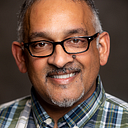Mathematical Expertise: It is a Myth and it is Dangerous
I know enough math to be intensely allergic to having anything to do with the label “expert” being attached to it. Only a week ago did I come to the understanding that the concept of zero was poorly communicated from the East to the West. The West shortchanged zero — and its main architect, Brahmagupta — and gave all of us a cheap facsimile. Namely, that it is a placeholder. As such, North American math education doesn’t start at zero, but pays a polite tourist stop to it. North American math education’s altar of worship is fractions — and it refuses to budge from that narrative.
One reason I believe that our math discussions, especially on social media, tend to have such incredible depth is that we have cultivated the idea that mathematical expertise is something obtainable. But, more than that, it is a worthy pursuit that only can produce benefits. The optics would suggest as much.
The problem is — and I have been in this math education business a quarter century(still only half of my key mentors) — that expertise has led to the construction of tall silos. As such, if the knowledge is not within my silo, I am not interested in engaging with it — and trading in my expertise card.
Leadership is often conflated with expertise. Unfortunately, what happens, and quite unintentionally I might add, is that large echo chambers are created of what to listen to and who to listen it from.
Expertise gives the illusion of a terminus. You arrive here, brush your hands a few times, and you’re kind of done. Mathematics maybe one of worst areas to hold that belief.
The era of deep specialization has gone too far. A great article to read is this one by Nick Lovegrove
In the field of math education, having deep and fixed beliefs about anything from content knowledge to pedagogy leads to general inflexibility about having broader and more macro conversations. To reference the opening picture, we collectively lose our ability and interest to think perpendicularly.
There just isn’t enough energy to question a paradigm, never mind change it.
Just look at the math conversations on social media. Very few are tempered with the broader issues of anxiety, mental health, and depression — which mathematics directly contributes to. We just march on. Even equity discussions, which seems like so many want to participate in, has a gate keeping mechanism in place. There is a prescribed idea about equity, and that is what we shall discuss.
Not allowing or promoting the idea that the entire K to 12 math curriculum needs a long and hard audit through the lens of math history and much needed decolonization is hardly equitable in my opinion…
Giving all kids access to the same dysfunctional and disingenuous ideas about mathematics doesn’t seem to promote wellness in my opinion, even if the intentions are good with destination landmarks of career opportunities and such. It’s a good place to start. It’s certainly not a good place to finish.
Mathematical expertise, while a laudable promise, inherently creates a claustrophobic space of content and time to cover and “get” that content for our students. Most of mathematics is repeated failure over centuries by thousands of people. Selling the exact opposite idea is not only incorrect, it has indirect consequences of contributing to the anxiety-riddled world of learning mathematics.
James Tanton, who has his Ph.D in math from Princeton, remarked to me in Montreal a few years back that he never really understood “place value”. His deeper investigation into it led to his now world famous Exploding Dots.
Leadership in math education needs to include addressing the correct narrative of the thematic development of mathematics. Leadership in math education needs more math educators and teachers to showcase not just their understanding, but their misunderstanding as well — past and present.
When I started teaching 20 years ago, I only assigned the calculus questions that I could do. By the end of my career, I assigned them all, wonderfully and thankfully failing quite a few times in front of my students. I learned, albeit a bit too late in my teaching career, that the lesson doesn’t need to end with a solution.
It simply needs to end with immeasurable, but wholly vital, curiosity.
It is more important that teachers want to know the answer as opposed to possessing it. Or, as Dan Finkel says “You are not the answer key”.
It simply needs to end with immeasurable, but wholly vital, curiosity.
Knowledge, even some mathematical knowledge, does not hold the currency that we think it does.
We are not robots seeking perfection. We are humans seeking truth. Being satiated with our place and lot in mathematics/math education is a comfort zone we cannot risk…
